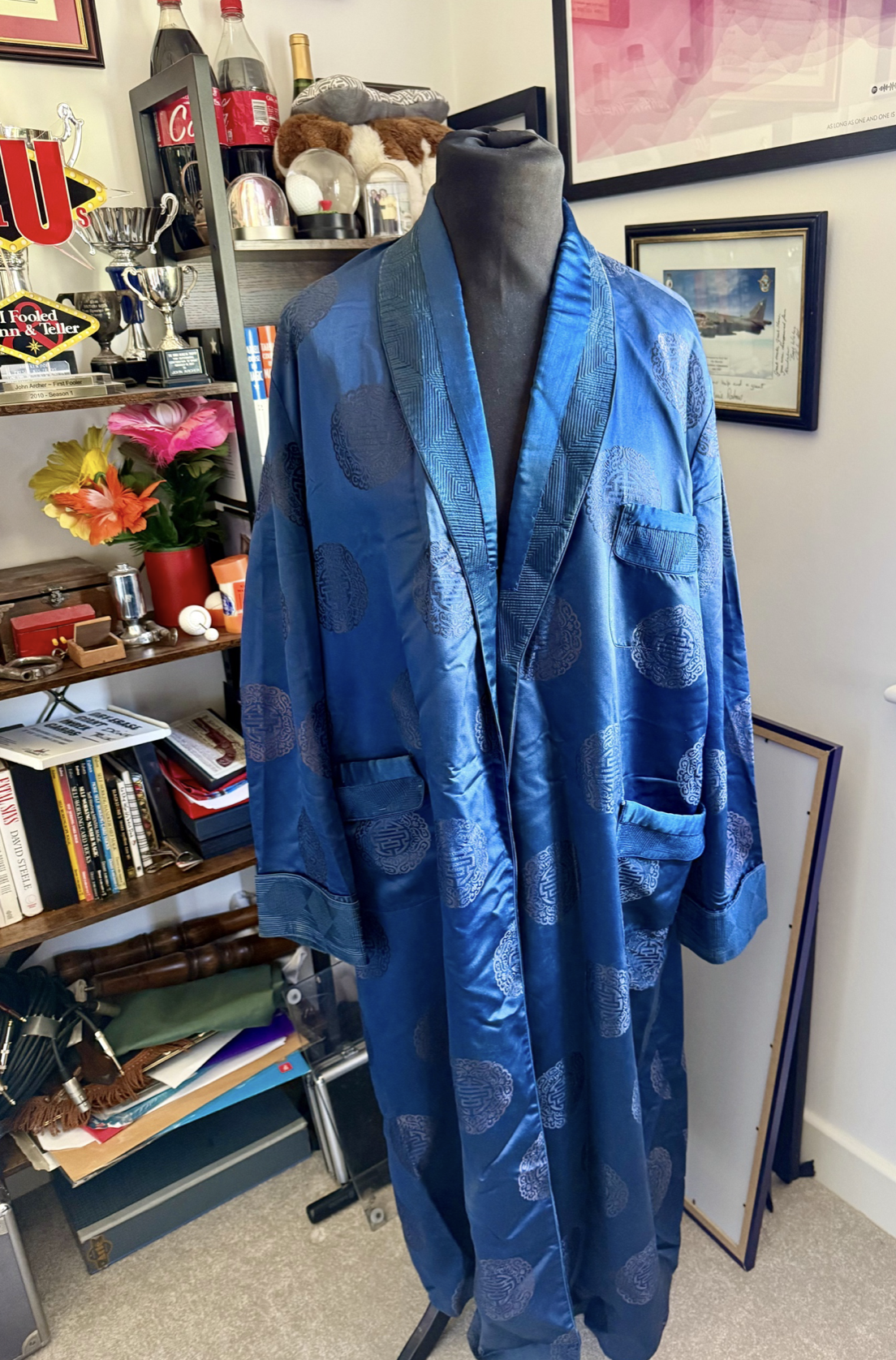Tommy Cooper
A question often asked about Comedy Magic is regarding the balance between comedy and magic. How much magic is ‘enough’? Can you have too much Comedy? Does the Comedy serve the Magic? Would you sacrifice the magic for the comedy? I am sure this is something that we will discuss at ComClave, and I am also sure that the answers will vary from performer to performer. Indeed, it’s possible to be thought of as a Comedy Magician and have very little magic in your act, which brings me to the subject of this blog…
To American audiences, the idea of a bumbling magician whose tricks usually go wrong might sound like an act doomed to fail and for most, it is. However, in the UK, one man turned that idea into comedy gold, making it his signature style. Tommy Cooper, a towering figure both literally (he stood at 6’4”) and culturally, remains one of the most loved entertainers in British history. His unique blend of slapstick, magic, and comedic timing captivated audiences for decades. He passed away on stage in 1984, but his influence continues to resonate in British comedy. I suppose the nearest thing to him in the USA, doing what is often called ‘Cod Magic’, would have been the great Carl Ballentine.
Born in Wales in 1921 and raised in Exeter, England, Tommy Cooper began his career in entertainment during his service in the British Army in World War II. He was a member of the entertainment unit, where he honed his comic and magical skills. The key to his later fame, however, came from a happy accident: when a magic trick went wrong during a performance, the audience erupted in laughter. Cooper quickly realised that there was more fun, and perhaps more success for him, to be found in failed illusions than in perfect ones.
What followed was a career defined by deliberate chaos. Wearing a red fez, a relic from an impromptu wartime performance, Cooper would stumble onto stage in oversized suits, immediately launching into a barrage of one-liners, puns, and tricks that always teetered on the edge of disaster. Props would break. Cards would fly everywhere. Rabbits refused to appear. And all the while, Cooper would glance at the audience with a mischievous smile, fully in control of his act despite its apparent disorder.
The magic of Cooper wasn’t that the tricks went wrong; it was in the mastery with which he made them go wrong. To appear clumsy takes precision. Cooper was, in fact, an accomplished magician and a member of The Magic Circle.
His timing was impeccable. His catchphrase, delivered in his booming voice, often after a trick failed, was, “Just like that!” The phrase became a national catchphrase in the UK. His persona was that of a lovable oaf, a man perpetually surprised by his ineptitude. Yet behind the facade was an astute showman.
Though he never made it big in the United States, Cooper's humour transcends borders. Fans of American comedians like Steve Martin, Jim Carrey or our very own David Williamson may see echoes of Cooper’s surreal physicality and manic energy. His influence can also be traced in magicians like Penn & Teller, who similarly subvert magical expectations for comedic effect.
As you can probably tell, I am an avid Cooper fan and have several of his personal items, including his dressing gown, which he wore in theatre dressing rooms far and wide for the last 25 years of his career, and his handmade billiard cue, which he acquired while on a trip to Hong Kong.
More interesting for comedy fans are his many handwritten postcards, which contain gag ideas and set lists. I have included a few for you to see here; they are fun to try and decipher.





Today, with comedy increasingly accessible across borders and platforms, American audiences have more opportunities than ever to discover global comedic icons like Cooper. YouTube is filled with vintage clips of his performances, short bursts of joyful chaos that still resonate decades later. His humour was built not on perfection, but on imperfection. He reminded us that laughter often lies not in success, but in glorious, well-timed failure. And that is magic in its own right.
So, if you’ve never heard of Tommy Cooper, do yourself a favour. Watch a clip, hear the audience roar, and see what all the fuss is about. You may find yourself laughing harder than you expected and wondering why this brilliant buffoon isn’t already a household name on both sides of the Atlantic. Of course, not everyone will be a fan, as my grandmother always said, “He’s too daft to laugh at”. You decide.


